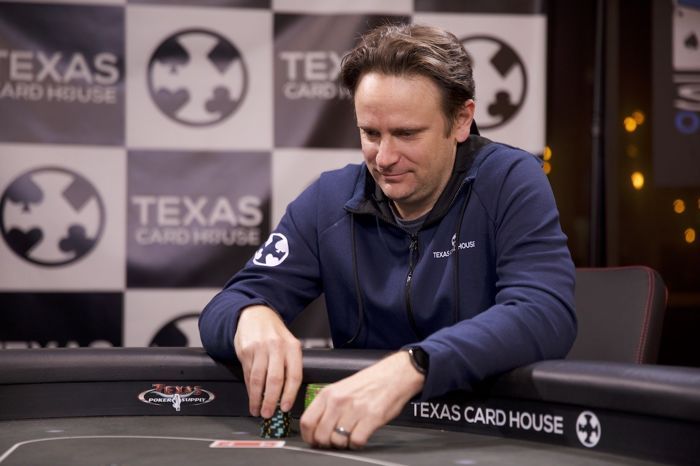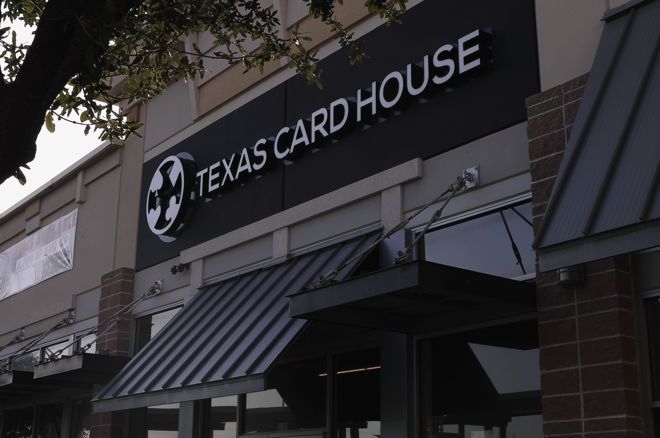Welcome to the Wild Wild West, the supposed “land of the free,” where residents can do as they please so long as they don’t steal, kill, or open a poker room, apparently.
Texas has some strict anti-gambling laws, perhaps a bit odd considering how “free” the state is otherwise (except marijuana). In Dallas, city officials are beginning to crack down on poker for some mysterious reason.
One poker room in the area, Texas Card House, recently received a notice informing the business their Certificate of Occupancy was being revoked. Ryan Crow, TCH’s CEO, told PokerNews that he had no reason to believe the city would attempt to shut him down.
“Because other rooms had been shut down we knew there was a chance something could happen,” Crow said. “The city councilman for our district Omar Narvaez came out and visited us. He, as well as a few other city officials, have shown a lot of support so, in the end, we were very surprised when we received the letter. Six months ago I would have told anyone that Dallas was the safest city we operate in due to the fact that they had been so collaborative when we came to the city.”
Crow wasn’t given many details on why his permit was being revoked. The notice simply read, “The building official is required to revoke a certificate of occupancy if he or she determines that it was issued in error. Upon review of the attached land use statement submitted with the certificate of occupancy application, it has been determined that the description violates the Texas Penal Code section 47.04, ‘Keeping a Gambling Place.'”
Seeking an Appeal
Texas Card House remains in operation with dozens of daily cash games spread. Crow is awaiting a likely February appeal with the City Board of Adjustments, an appeal he isn’t confident will go his way, but it may not be devastating. His lawyers are preparing for the next steps already.
“The cards are kind of stacked against us at the appeals board,” he admitted.
Should he lose that appeal, it’s anyone’s guess as to if the city will force the Dallas card room to close. He said it wouldn’t be good for business to shut down operations for months while he fights it out in court, but he’s confident that things will work out because, as he said, “I’m running a legal business.”
“We feel, and our attorneys feel, that we have a good case,” Crow said.
In Texas, gambling is illegal outside of certain Indian reservations. Per Texas Penal Code Section 47.04, a business cannot be used to “keep a gambling place,” meaning if you opened up a slot machine parlor in the Lone Star State, you’d be breaking the law.
But there is a bit of loophole in the wording of the Section 47.04, and poker room owners such as Crow have figured it out.
“There is a limited exception for persons who use a private place and receive no economic benefit other than personal winnings,” Texas law states.
Crow, along with many others including numerous local politicians and lawyers, interpret that to mean a poker room is legal so long as the business doesn’t take rake. And that’s exactly how Texas Card House, and other Texas poker rooms, operate.
At TCH, players pay a $30 monthly or $300 annual membership fee for access to the club. When they arrive to play poker, they’re charged a $13 hourly seat fee. There’s no rake taken out of the pots and, as Crow explains, that’s what allows his room to operate within the law, as stated in Penal Code Section 47.04.

City Council Going Back on their Word?
Crow spent countless hours in 2019 and 2020 meeting with City Council members explaining to them his business plans. In January 2019, he spoke before a city council meeting where Chris Caso, the current City Attorney who served in a different role at the time, went to bat for the proposed poker room.
“The House doesn’t take a cut out of this,” Caso explained to city council members at the aforementioned 2019 meeting. “Here, all you’re charging is a fee, say, a membership fee. If they decide we aren’t making enough money so we have to take a cut, then that switches it over to illegal.”
Caso made that statement of approval with Crow standing directly behind him. Fast forward almost three years to the day and the Dallas City Attorney’s office is taking an opposite stand on poker clubs such as Texas Card House.
Crow told PokerNews he isn’t just concerned with the financial ramifications he’ll face if the club is forced to close.
“We have over 215 employees and they are paid well, receive benefits, and would be out of a job,” the CEO stated. “We were going to open another location in Dallas, but that won’t be happening.”
Crow’s company operates three other locations — Austin, Houston, and Rio Grande Valley. Those locations are booming just like in Dallas, but they aren’t facing political opposition.
PokerNews reached out to the Dallas City Attorney’s office for comment but have not received a response.
*Images courtesy of Texas Card House
